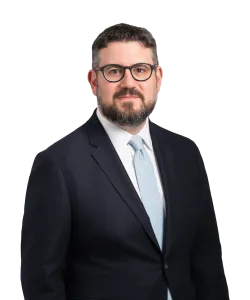2nd Circ. Ruling Offers Ch. 11 Guidance In A Post-Siegel World
Originally published by Law360
On Nov. 10, the U.S. Court of Appeals for the Second Circuit directed the U.S. Bankruptcy Court for the District of Connecticut to order a refund of fees paid by a Chapter 11 debtor to the Office of the U.S. Trustee, or UST.
The Second Circuit’s ruling in In re: Clinton Nurseries Inc. is significant for parties who were involved in Chapter 11 bankruptcy cases between Jan. 1, 2018, and March 31, 2021, and particularly those in the Second Circuit.
Although the U.S. Supreme Court held in Siegel v. Fitzgerald that the UST’s fee structure violated the uniformity requirements of the U.S. Constitution, the court left open the question of the proper remedy for these unconstitutional fee overcharges.
The Second Circuit’s decision in Clinton Nurseries provides guidance to current and former debtors, plan administrators and liquidating trustees to potentially seek refunds of unconstitutional overpayments made to the UST system.
Background
The UST’s budget is funded by the U.S. Trustee System Fund, which consists primarily of administrative fees paid by debtors pursuant to a formula set forth in Title 28 of the U.S. Code, Section 1930(a)(6).
This statute provides a sliding scale of fees that are based on the debtor’s quarterly disbursements. The formula changes periodically to reflect the UST’s budgetary needs.
For instance, between Jan. 1, 2008, and Dec. 31, 2017, a debtor making quarterly disbursements aggregating more than $30 million would be subject to the maximum UST fee of $30,000.
Effective as of Jan. 1, 2018, Congress revised the formula due to funding shortfalls, raising the maximum fee to $250,000 when quarterly disbursements aggregated to more than $25 million. The revised formula remained in effect until March 31, 2021.
Importantly, however, the UST does not operate in North Carolina or Alabama. Rather, a bankruptcy administrator serves as the government watchdog in the federal judicial districts within North Carolina and Alabama and performs duties analogous to those of the UST.
The bankruptcy administrator is also funded, in part, by the collection of fees based on debtors’ quarterly disbursements. The bankruptcy administrator’s formula was not required to match the UST’s formula.
As a result, debtors with bankruptcy cases pending in different states were subject to different fee formulas. The disparity between fees charged by the UST and the bankruptcy administrator led to litigation with divergent results.
The U.S. Courts of Appeals for the Fourth, Fifth and Eleventh Circuits found that the revised formula was constitutional, notwithstanding the differing obligations imposed on debtors in UST and bankruptcy administrator jurisdictions.[2]
Similarly, the U.S. Bankruptcy Courts for the District of Delaware and the Southern District of Ohio, as well as the U.S. Court of Federal Claims, found the revised formula constitutional.[3]
However, the U.S. Courts of Appeals for the Second and Tenth Circuits found the revised formula unconstitutional and ordered refunds of fees based on what the debtor would have paid over the same time if the case had been in a bankruptcy administrator district.
This circuit split ultimately reached the Supreme Court in Siegel v. Fitzgerald this year, which resolved the issue by determining that the revised formula was indeed unconstitutional.
The Supreme Court did not determine whether or when a refund was the proper remedy for the payment of unconstitutional UST fees.
The Supreme Court Decision
Siegel involved an adversary proceeding arising from the Chapter 11 filings of Circuit City Stores Inc. and its affiliates in the Eastern District of Virginia, a UST district.
The U.S. Bankruptcy Court for the Eastern District of Virginia confirmed Circuit City’s Chapter 11 plan of liquidation in 2010, which led to the creation of a liquidation trust that was tasked with collecting and liquidating Circuit City’s remaining assets and remitting quarterly fees to the UST until the cases were closed.
At the time the revised formula became effective, the liquidating trust was still administering Circuit City’s assets and the bankruptcy cases were still open.
In the first three quarters of 2018 alone, the liquidating trust paid $632,542 more in fees to the UST than it would have paid to a bankruptcy administrator.
The liquidating trust successfully challenged the constitutionality of the fees and the revised formula, which the bankruptcy court held were unconstitutionally nonuniform and entitled the liquidating trust to a refund.
On appeal, the U.S. Court of Appeals for the Fourth Circuit reversed the bankruptcy court and the Supreme Court granted the liquidating trust’s request for a writ of certiorari.
In its decision, the Supreme Court first noted that the bankruptcy clause in Article I of the U.S. Constitution empowers Congress to establish “uniform laws on the subject of Bankruptcies throughout the United States.”[4]
Explaining that the bankruptcy clause applies broadly to all laws dealing with bankruptcy, the court reasoned that UST fee frameworks — e.g., the revised formula — are subject to the Constitution’s bankruptcy uniformity requirement.
The Supreme Court held that the uniformity requirement of the Bankruptcy Clause prohibits Congress from arbitrarily burdening only one set of debtors with a more onerous funding mechanism than that which applies to debtors in other States.
Accordingly, the Supreme Court found the revised formula unconstitutional.
Importantly, however, the Supreme Court did not articulate a remedy and instead remanded that issue to the lower courts for further consideration.
The Second Circuit’s Remedy Ruling
Prior to Supreme Court’s ruling in Siegel, the Second Circuit in 2021 held that the revised formula was unconstitutional in Clinton Nurseries, awarding the debtors a refund of approximately $375,000 in UST fees that the debtors would not have paid in a bankruptcy case filed in the federal judicial districts located in Alabama and North Carolina.
This ruling was stayed while the Supreme Court considered Siegel, delaying payment of the refund.
On Nov. 10, the Second Circuit reaffirmed and reinstated its prior refund order in light of Siegel granting Clinton Nurseries its refund.
Although the ruling in Clinton Nurseries is limited to the parties involved in that case, the Second Circuit’s decision establishes an important precedent that should be considered by debtors, liquidating trustees, and plan administrators of Chapter 11 cases that were pending during the period of Jan. 1, 2018 through March 31, 2021.
This is particularly true for cases within the Second Circuit but may — and likely will — be relied upon by other courts.
Notably, the UST has until Feb. 10 to appeal the Second Circuit’s November decision to the Supreme Court.[5]
Status in Other Circuits
In addition to the Second Circuit’s decision in Clinton Nurseries, the U.S. Court of Appeals for the Tenth Circuit held in In re: John Q. Hammons Fall 2006 LLC in August that the revised formula was unconstitutional and directed the bankruptcy court to award a refund.[6]
This ruling was stayed while Siegel proceeded before the Supreme Court but was reinstated by the Tenth Circuit following Siegel, thereby opening the door for refund requests by eligible parties with cases pending in Colorado, Kansas, New Mexico, Oklahoma, Utah and Wyoming.
Courts that previously found the revised formula constitutional will reconsider their decisions in light of Siegel and declare the revised formula unconstitutional.
These jurisdictions, which include the Fourth, Fifth and Eleventh Circuits, as well as the U.S. Bankruptcy Courts for the District of Delaware and the Southern District of Ohio, and the U.S. Court of Federal Claims, may craft a remedy of their choosing or could deny a remedy altogether.
For example, in his concurring opinion in In Re: Mosaic Management Group Inc., U.S. Circuit Judge Andrew Brasher of the Eleventh Circuit expressed his view that a remedy was inappropriate notwithstanding his view that the revised formula was unconstitutional.
Looking forward, the Eleventh Circuit has directed parties to brief the issue in light of Siegel and is scheduled to rehear the case on Feb. 13.
The Fourth Circuit took a different approach, remanding the Siegel case back down to the bankruptcy court following the Supreme Court’s decision.
The UST is opposing any imposition of a remedy by the bankruptcy court. Similarly, the U.S. District Court for the Southern District of Ohio remanded its case to the bankruptcy court to decide the remedy issue in light of Siegel. Neither bankruptcy court has held a hearing nor issued a decision at this juncture.
In the Court of Federal Claims, the debtor-claimants and the UST are likewise in the process of briefing the question of the proper remedy for payment of unconstitutional fees in Acadiana Management Group LLC v. United States.
What makes the Federal Claims case unique is that the debtor-claimants are seeking to certify a class action on behalf of
[a]ll individuals and entities that have paid or are paying increased Chapter 11 quarterly fees to the United States pursuant to 28 U.S.C. § 1930(a)(6)(B), whose bankruptcy cases were filed prior to October 1, 2018.[7]
The UST has responded that, even if retroactive relief is appropriate, the proper remedy “is collection in the six Administrator Program districts, not refunds in the 88 Trustee Program districts.”[8]
If a class action is certified, the remedy selected by the Court of Federal Claims could have a dramatic impact and be the tipping point for the Supreme Court to reenter and articulate the proper remedy.
Originally published by Law360 here.
[1] In re Clinton Nurseries, Inc. ![]() , 998 F.3d 56 (2d Cir. 2021), cert. granted, judgment vacated sub nom. Harrington v. Clinton Nurseries, Inc., 143 S. Ct. 297 (2022).
, 998 F.3d 56 (2d Cir. 2021), cert. granted, judgment vacated sub nom. Harrington v. Clinton Nurseries, Inc., 143 S. Ct. 297 (2022).
[2] See United States Tr. Region 21 v. Bast Amron LLP ![]() (In re Mosaic Mgmt. Grp.), 22 F.4th 1291, 1327 (11th Cir. 2022); In re Circuit City Stores
(In re Mosaic Mgmt. Grp.), 22 F.4th 1291, 1327 (11th Cir. 2022); In re Circuit City Stores ![]() , Inc., 996 F.3d 156, 160 (4th Cir. 2021); In re Buffets, LLC
, Inc., 996 F.3d 156, 160 (4th Cir. 2021); In re Buffets, LLC ![]() , 979 F.3d 366 (5th Cir. 2020).
, 979 F.3d 366 (5th Cir. 2020).
[3] See In re Exide Techs. ![]() , 611 B.R. 21, 26 (Bankr. D. Del. 2020); In re ASPC Corp., 631 B.R. 18, 35 (Bankr. S.D. Ohio 2021); Acadiana Mgmt. Grp., LLC v. United States, 151 Fed. Cl. 121, 132 (2020).
, 611 B.R. 21, 26 (Bankr. D. Del. 2020); In re ASPC Corp., 631 B.R. 18, 35 (Bankr. S.D. Ohio 2021); Acadiana Mgmt. Grp., LLC v. United States, 151 Fed. Cl. 121, 132 (2020).
[4] See U.S. Const., Art. I, § 8, cl. 4.
[5] See 28 U.S.C. § 2101(c).
[6] In re John Q. Hammons Fall 2006, LLC ![]() , 15 F.4th 1011, 1016 (10th Cir. 2021), cert. granted, judgment vacated sub nom. Off. of the United States Tr. v. John Q. Hammons Fall 2006, LLC, 142 S. Ct. 2810 (2022), and reinstated by No. 20-3203, 2022 WL 3354682 (10th Cir. Aug. 15, 2022).
, 15 F.4th 1011, 1016 (10th Cir. 2021), cert. granted, judgment vacated sub nom. Off. of the United States Tr. v. John Q. Hammons Fall 2006, LLC, 142 S. Ct. 2810 (2022), and reinstated by No. 20-3203, 2022 WL 3354682 (10th Cir. Aug. 15, 2022).
[7] Acadiana Mgmt. Grp., LLC v. United States, Fed. Cl. Case No. 19-00496, Dkt. No. 8.
[8] Id., Dkt. No. 71.
Contacts
- Related Practices


